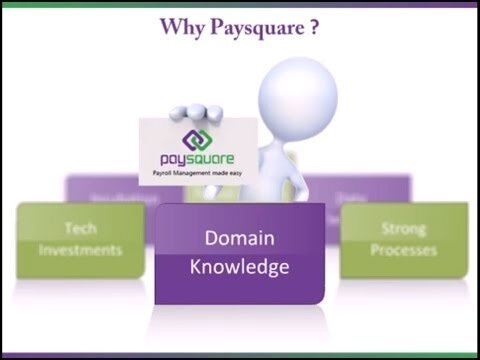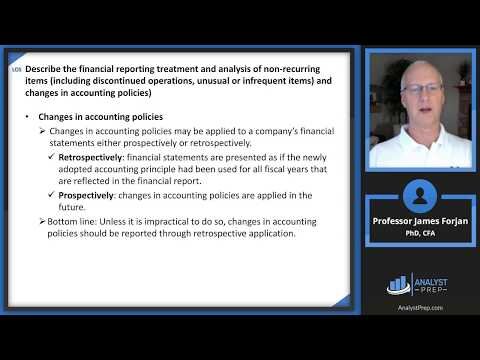Contents:


Here are ten tips to make small business bookkeeping easier. Unless you’re dying to break out adding machines and slide rules, feel free to take advantage of the many bookkeeping apps and software on the market. Small business bookkeeping is a necessary business task, but if it’s not your favorite activity, you’re not alone. Admiring your profits is always fun, but going over ledgers and calculators? And even though every bookkeeping tip includes everything you need to use it on the job—you also get the IRS rule, reg, tax code section or court case for reference.

Make sure you are correctly identifying and classifying your employees for tax purposes. Every month reconcile your bank statements with your books to make sure all the numbers add up. Back up all of your financial documents, preferably intangible, paper form as well as electronically, just in case of technical failure.
You get one on-the-job bookkeeping tip or technique each week. Here are the 3 required bookkeeping details for business meal deductions. Use tools to help you set a budget and manage your assets to better oversee your operational costs.
The Ascent is a Motley Fool xero certification for accountants and bookkeepers that rates and reviews essential products for your everyday money matters. We’re firm believers in the Golden Rule, which is why editorial opinions are ours alone and have not been previously reviewed, approved, or endorsed by included advertisers. Editorial content from The Ascent is separate from The Motley Fool editorial content and is created by a different analyst team.
RESOURCES
An accounting software, like QuickBooks Online, helps you organize your financial data, prepare small business taxes, run payroll, do your invoicing, and more. But, Bingham warns, you get what you give when it comes to accounting and bookkeeping software. Organizing and keeping accounting records like business invoices, receipts, and expenses can make or break your business’s books. If you fail to keep accurate records, the financial condition of your company can suffer.

Self-Employed The tools and resources you need to run your own business with confidence. Midsize Businesses The tools and resources you need to manage your mid-sized business. Your Guide to Growing a Business The tools and resources you need to take your business to the next level. Taxes Tax basics you need to stay compliant and run your business. Your Guide to Running a Business The tools and resources you need to run your business successfully. Your Guide to Starting a Business The tools and resources you need to get your new business idea off the ground.
Doing so also alerts you about discrepancies you want to focus on. But you need the receipts for expense categorization, documentation for deduction support, and more. Also, well-documented and organized receipts can significantly help during audits. You’re hoping to avoid a scenario where everyone is operating on an island. That could lead to people making purchases without an understanding of your overall cash flow and budget.
You want to spend less time on record-keeping and more time on your business. While the job of bookkeeper may appear similar as an accountant, they are only similar on the surface. A bookkeeper records all of the financial transactions for a business, while an accountant’s job is to interpret and analyze the data recorded by the bookkeeper. If you keep your records in check using these bookkeeping tips, you will be able to spend less time on business finances and more time on growing your business. For money management tips and more, check out our small business resources. Having a client owe you money for services, especially at the end of the year, isn’t the same as having that money in your business account.
Business bookkeeping basics FAQ
It breaks everything into snackable chunks and https://bookkeeping-reviews.com/s you’re operating on up-to-date information. Mary Girsch-Bock is the expert on accounting software and payroll software for The Ascent. Any and every transaction you make needs to be recorded, either in your ledger book or in your accounting software application. Having a good advisor on the payroll to help you out at least once a month can become invaluable.
The Best Payroll Companies for Small Businesses in 2023 We looked at 15 of the top payroll processing companies and evaluated their user friendliness,… The 5 Best Payroll Apps for Small Business 2023 Constantly on the go? Get one of our top payroll mobile apps so you’ll always…
The Beginner’s Guide to Bookkeeping
The purpose behind completing a monthly reconciliation is to see what checks are still outstanding, post any bank transactions, and add additional charges such as account fees. You also need to understand what debits and credits are before you can start to enter any transactions. Any transaction posted in your ledger or your accounting software will be a debit or a credit. You have been recording journal entries to accounts as debits and credits. At the end of the period, you’ll “post” these entries to the accounts themselves in the general ledger and adjust the account balances accordingly. If you find you’re spending too much time trying to work through your finances, it might be time to consider investing in bookkeeping services.
- https://maximarkets.world/wp-content/uploads/2020/08/trading_instruments.jpg
- https://maximarkets.world/wp-content/uploads/2019/03/MetaTrader4_maximarkets.jpg
- https://maximarkets.world/wp-content/uploads/2020/08/forex_education.jpg
- https://maximarkets.world/wp-content/uploads/2020/08/logo-1.png
The only way to make sure you’re meeting those obligations is by isolating all of your business transactions. Third, if your business truly operates as a separate entity, you’re offered the full legal protections given to companies. Liabilities are what the company owes like what they owe to their suppliers, bank and business loans, mortgages, and any other debt on the books. The liability accounts on a balance sheet include both current and long-term liabilities. Current liabilities are usually accounts payable and accruals.
Store records securely
These accounts and their sub-accounts make up the company’s chart of accounts. Assets, liabilities, and equity make up the accounts that compose the company’s balance sheet. You also have to decide, as a new business owner, if you are going to use single-entry or double-entry bookkeeping. Single-entry bookkeeping is much like keeping your check register. You record transactions as you pay bills and make deposits into your company account.

You can find payroll providers that integrate with different accounting software for automatic data entry. Balance sheets show your business’ assets and liabilities. Remember that assets are what your company owns, and liabilities are what it owes. A balance sheet can help you decide whether your business can meet all its financial obligations. When a transaction rolls in, that’s pretty manageable, right? That pile of papers can start to look a little chaotic and it’s tougher to sort out.
Bookkeeping software helps you prepare these financial reports, many in real-time. This can be a lifeline for small-business owners who need to make quick financial decisions based on the immediate health of their business. Fully automated accounting software makes keeping your books as easy as possible. Enter some basic business information and we’ll send you up to five free quotes customized to your unique bookkeeping needs. Bookkeeping begins with setting up each necessary account so you can record transactions in the appropriate categories. But regardless of the type or size of business you own, the accounts we list below are the most popular.
Keeping the retained earnings account up-to-date is important for investors and lenders who need to track the company’s performance over time. Retained earnings accumulate, meaning they reflect the total amount of money retained since the company’s launch. If properly updated, it doesn’t take much time to manage this account. In the retained earnings account, bookkeepers monitor any profit the company makes that isn’t paid out to owners and investors. Finance and accounting can be intimidating topics for entrepreneurs. This guide was designed to help you operate your business more efficiently.
Launching a New Business in a Recession: 5 Key Tips – Business News Daily
Launching a New Business in a Recession: 5 Key Tips.
Posted: Mon, 06 Mar 2023 08:00:00 GMT [source]
Few things are quite as motivating as a weekly income statement. Bookkeeping is the process of recording all financial transactions made by a business. Bookkeepers are responsible for recording, classifying, and organizing every financial transaction that is made through the course of business operations. The accounting process uses the books kept by the bookkeeper to prepare the end of the year accounting statements and accounts. Your chart of accounts is the backbone of your business and is a necessity in order to properly record transactions.
When you don’t account for your transactions properly, it can put you and your whole business at risk. The IRS can write you a penalty for any missed transactions. The same can happen if you don’t categorize your transactions right. In fact, it’s probably saved you a lot of money over the years. But payroll companies are surprisingly affordable and usually well worth the cost. They keep up with the latest taxes, withholding requirements, and prepping the right forms for tax season.
Many business owners aren’t aware of how much it costs to operate their business. It’s important to know how much every individual part requires to function properly. Understanding helps identify shortfalls, discrepancies, and other issues that are important to catch early. If the cost starts to approach the actual cost of outsourced bookkeeping, it’s time to consider taking the load off your back. However, you may reach a point where no enthusiasm or persistence level can help.
Leave a Response